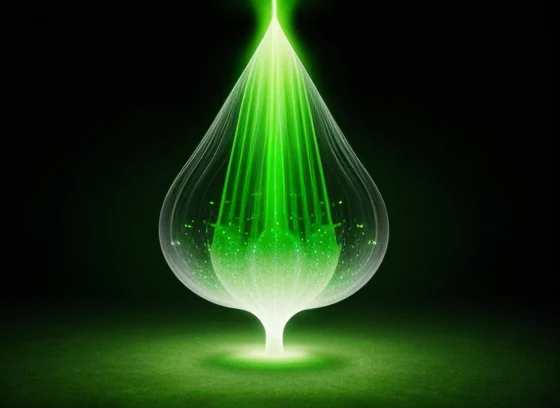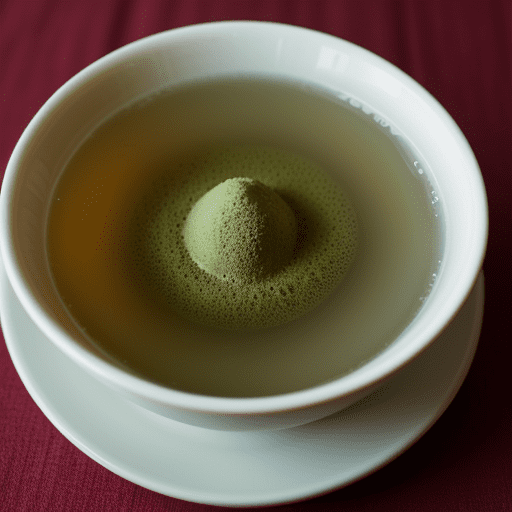The Secret to Lush Gardens: Unlocking the Benefits of Mushroom Compost
Gardeners and horticulture eagers are always looking for some new method, improving their soil to boosting both roots of crops/plants… One of the best kept secrets with gardening pros is what mushroom compost can do for you. The resulting organic soil amendment—a combination of the bi-products from making mushrooms—provides a higher nutrient content and moisture holding capacity that can turn even poor soils into productive plant growing beds. Mushroom compost is more sustainable and environmentally conscious than chemical fertilizers, as it improves organic matter in the soil, enhances microbial activity within the plant root zone and slowly releases essential macronutrients (nitrogen [N], phosphorous [P] and potassium salts [K]). Whether you grow beautiful flowers, productive vegetable gardens or lush green lawns at home; using mushroom compost will increase the health and growth of your plants by a noticeable margin. Adopt this organic treatment that can full-fill the life of your garden with it’s richness and you will get to see their blooming better than ever.
Understanding Mushroom Compost
WHAT IS MUSHROOM COMPOST/SUBSTRATE —Summary— Mushroom compost (spent mushroom substrate) is an organic material formed as a by-product of the mushroom growing process. The compost is composed of natural non-contaminated substrates (such as straw, horse manure and poultry litter), mixed by a well experienced team, hot-composted then pasteurized to produce the ideal environment for mushroom cultivation. After the mushrooms are harvested, the spent substrate is both nutrient and organic-rich making it an excellent soil amendment.
Knowing how to put mushrooms in their soil is also described as understanding the advantages of mushroom compost for garden soils. This improves the quality of soil structure which encourages aeration and retaining moisture that are vital for plant growth. Mushrooms compost is slow-releasing, which supplies your plants with nitrogen (N), phosphorus(P) and potassium(K). Its high organic content also enhances soil fertility and fosters the presence of beneficial microorganisms. Mushroom compost secrets for gardeners: enriching your beds, boosting lawn health and energizing worn-out soils can be all treasured by the hard-working gardener who is fortunate enough to use a batch of honest-to-goodness old mushroom (compost).
What is Mushroom Compost?
Mushroom compost, also known as spent mushroom substrate (SMS) is a byproduct from the commercial mushroom farming industry. It is a special blend of organic material such as straw, hay, corn cobs and composted poultry or horse manure that has been conditioned to utilize the by-products created in cultivating mushrooms. So once you have harvested the mushrooms, all of that left-over material is the mushroom compost.
The compost is known to be particularly beneficial in improving garden soil, as it helps with the structure — sapping any too-tightly packed soils of air-filled pores and providing plenty more for roots to travel through on their quest down below ground level; water retention (it soaks up underwatered paths while releasing excess wetness when there’s simply an excessive amount); boosting Susquehanna stream Plain City Shake-n-Beat fertilizerWebsite: www.sus-systems.com nutrients into root accessible compounds. Mushroom compost is beneficial because it has microbial activity, which can be extremely helpful in creating healthy soil that supports strong plants. It is also pH neutral, and can assist in stabilizing acidic soils. Both home gardeners and professional cultivators alike have long admired mushroom compost as a superb, eco-friendly amendment for topsoil to establish fertile, productive gardening beds.
How is it Made?
What is mushroom compostMushroom Compost – Spent Mushroom Substrate (SMS) It is made of horse manure, straw or hay (and so forth), bird litter such as poultry and turkey manure, corn cobs and lime-like gypsum with other natural ingredients. These materials are then well-mixed and moistened to enhance the activity of micro-organisms which decompose them, starting off with decomposition. This mixture is then pasteurised which involves heating the blend up to high temperatures, it kills any bugs and pathogens and also all weed seeds resulting in a sterile medium for mushroom cultivation. Mushroom compost is the substrate after mushrooms are harvested, which contains fungal mycelial and residual nutrients. With a balanced pH and increased microbial life, it is nutrient-rich compost that adds value to your gardens. It enhances the soil structure, retains water and adds necessary plant nutrients which helps to enhance lush green blooms.
Differences Between Mushroom Compost and Traditional Compost
Mushroom compost, unlike traditional compost in most cases is made up of left over mushroom growing medium and has some vastly different properties. Mushroom compost is a mixture of organic matter such as peat moss and manure that has been used to grow mushrooms. The compost is loaded with nutrients and a range of beneficial microorganisms, making it perfect for enhancing the fertility as well the structure of your soil. High in pH-neutral to slightly alkaline as well, it can counter acidic soils.
In comparison, traditional compost contains a wider selection of organic waste such as kitchen scraps, yard clippings and other biodegradable materials. Although it delivers a complete and even supply of nutrients, traditional composting produces less homogenous content due to the individual nature of its inputs. Mushroom compost has started the process of decomposing before it is bagged and thus will release nutrients quickly to your plantsobe. That being said, historical compost will generally have a wider microbial range that is better for perpetuating the state and structure of soil. Each approach offers benefits that are complementary and provide a fuller soil ecology for best garden health.
Benefits of Mushroom Compost for Gardens
To gardeners, mushroom compost is what they call black gold and for good reason — it can so drastically improve your soil quality. This material, which is essentially a recycling product from mushroom farming and very rich in micro-nutrients improves soil structure with dilligent drainage whilst enhancing water-holding capacity. Composting rich in organic mushroom is high provide core nutrients like nitrogen, phosphorus and potassium that are needful for growth of plant and blossoms acutely.
Furthermore, its slight alkalinity can counteract acidic soil to balance pH levels leaving a good growing place for plants. Mushroom compost also augments microbial activity which helps the soil fertility and hosts biological persistence against plant disease. Also, its slow decomposition releases nutrients slowly into the soil providing a longer-lasting source of food so there is less need for weekly feedings. Mushroom compost is an excellent choice for environmentallly friendly gardeners, as this organic matter comes from waste products.
Nutrient-Rich Soil
Among other things, mushroom compost is a game-changer for creating nutrient-rich soil—the cornerstone of any garden that leaves you green with envy. Mushroom soil compost is a byproduct of mushroom farming that consists of organic material such as straw, manure and peat moss; they are also decomposed due to fungi activity throughout the mushroom growing process. Rich with vital nutrients including nitrogen, potassium and phosphorus all essential for growing healthy plants.
Mushroom compost is added to garden soil where it works as a good conditioner for the structure of the soil, helping in getting better water retention and airflow. It also encourages strong microbial activity which in turn leads to a really well balanced environment for the roots of your plants. While quickly leaching synthetic fertilizers can deplete soil nutrient densities, this slow-release amendment slowly lets out the richness of its natural multivitamins over time so that soils always have some good nutrition to sustain them.
Further, it is an eco-friendly option for gardeners as the mushroom compost can be continually harvested. This replenishes the soil, promoting healthy plants and bigger harvests – a real must-have for gardens that allow you to do just as much good without compromising on quality.
Improved Soil Structure
With the many benefits it brings, mushroom compost greatly improves soil structure and will work wonders for your gardens. Organic compost not only adds organic matter and helps build up the natural constituents of your soil, but also provides extremely important porosity than allows for root circulation. The texture of the compost is also soft, which helps in better water retention and at the same time it has proper draining to avoid cases like overwatering that can lead to root rot. It improves soil structure by promoting the formation of aggregates, or clumps of soil particles bound together with organic substances, which help to add stability and prevent compaction. The structure is such that it will help the roots to penetrate more easily providing essential nutrients and moisture at an optimal rate.
In addition to this, mushroom compost also brings about beneficial microorganisms into the soil. They are important for decomposing organic matter into more readily absorbable compounds by plants. The biological activity, in turn rejuvenates the soil and restores it over time as well. The consistent use of mushroom compost over a lengthier timespan also helps to establish durable, crumbly soil that offers support for established plant life and long-lasting garden productivity.
Enhanced Water Retention
Improves water holding capacity This way, the use of mushroom compost into your backyard is that it helps to improve water retention. It has rather large pores making it excellent for absorbing and holding a lot of water. Mushroom compost is high in organic matter, it usually contains straw, peat and other agricultural products that are often no longer used which makes an excellent water holding capacity while maintaining proper drainage This ensures that your plants have moisture available to them which means less watering is required, especially in places with drier climates or when there are long periods of drought. In addition, the water holding capacity of mushroom compost will keep a soil structure that is best for root progress and prevents compaction due to over-watering. It also supports healthy roots as well encourages good microbes activity. So in a way, mushroom compost is the reservoir that maintains an enriched garden without you having to add much else to your landscaping and thus helps retain some water which ultimately offers value for sustainable gardening.
Natural Pest Control Properties
One of the important things that mushroom compost does for garden ecology is contribute to insect control, a valuable commodity because if we pay attention there are almost always bugs which want to either eat our plants or make life miserable when spending time in the outdoors. Abundant with fungi and bacteria (both beneficial) this “black gold,” as I like to call it, easily suppresses many of the diseases detrimental to your garden. Mushroom compost does not upset the balance of nature and will help to promote good insects get established in your garden, acting as natural enemies to other pests.
Secondly, the microorganisms within mushroom compost also build up natural resistance in plants to pests and diseases. In addition, the increased nutrient content and soil structure that mushroom compost provides also promotes stronger root systems which in return make plants more resilient to attacks. As a natural defense mechanism this has meant that cultivated varieties require fewer synthetic pesticides, leading to more sustainable and ecological gardening.
Mushroom compost provides an environmentally-friendly strategy for combating bugs and diseases such that it not only benefits your plants but also reduces the likelihood of pest damage to promote a bountiful, beautiful garden.
How to Use Mushroom Compost in Your Garden
This is an excellent way to bolster the health of garden plants and improve soil quality. You will want to first apply a 2-3 inch layer of mushroom compost on your garden beds. Work it into the top 6 inches of soil light application for adequate mixing. This helps to increase nutrient levels but also increases the soil structure which leads better aeration and water holding capacity.
Mix a handful into the planting hole for seedlings or transplants. This jump-starts the nutrition for your young plants. Mulch & cover the soil: Once planted, spread a light layer of compost around established plants to retain moisture in the soil and control weed growth.
Mushroom compost — this can be mixed in with your existing garden area, so you may not need extra topsoil to begin with. It also works well added into a traditional compost pile—it helps break down organic matter even faster! Just remember not to overuse it, as you will just end up increasing salt levels that can have an effect on the more fragile plants. By properly utilizing your mushroom compost, you will create a beautiful and flourishing garden.
Application Methods
Mushroom compost can drastically improve the quality of your soil, it´s structure and fertility resulting in stronger plants. More than one way you can include mushroom compost in your regular gardening practice.
Soil Amendment (Popular Method) — It is one of the most popular ways it is used. This is mixing the compost into soil in place before planting, Ideal for new garden beds or vegetable plots where nutrients need to be taken up by the plants right away. This tends to be a more financially beneficial option than just using mushroom compost, which is why we usually go for about 20-30% by volume of all the soil used and use garden soil.
Another method where a layer of compost is spread over the soil surface around existing plants: Top-dressing. It slowly filters into the soil, and is absorbed over time benefiting it.
Mix with potting soil 1:3 for container gardening. This includes improving water holding capacity as well nutrient retention.
Either way, remember to water generously after the compost has been applied – this will help push it down into the soil and let its good work do some more thorough.
Ideal Plants for Mushroom Compost
What is Mushroom Compost Good For:Vegetable Garden Planted In Split LogsMushroom compost, a natural byproduct of the mushroom farming industry, provides your garden with a nutritional kick that works well for most plants. For mushrooms are suitable to use nutrients — nitrogen, phosphorus and potassium which is getting a new soil plants normalized: tomato, azalea camellias Rhododendron. It has a neutral to slightly base pH that is good in preparing vegetable gardens since cucumbers, eggplants and lettuce are plants meant for flourishing. Mushroom compost helps flowering annuals and perennials like petunias, marigolds, asters; they prefer good air circulation to roots and high water retention for vibrant blooms. Shrubs, trees (both fruiting and ornamental varieties) will grow more robustly as well if mulched with backyard compost. On the other hand, it does have a mild alkalinity to it which would mean that you should make sure and check your pH soil levels frequently, so they remain more in tune with what type of plant life you are nurturing.
Timing and Frequency of Use
It is essential that the timing and frequency must be maintained if one wants to get benefits of mushroom composted in lush garden. When creating new garden beds, consider adding mushroom compost as part of the soil blend when preparing to plant in spring or fall. In established gardens, a top dressing of compost in the spring encourages strong growth via increased soil organic matter and microbial activity.
Application frequency varies with the type of plant and soil, but generally one application per year is all that’s needed. More intense gardeners may choose a biannual strategy — spring for planting season and in late summer to refresh mid-season soils. By exact timing of growing season, nutrient leaching is prevented, and by spreading it just prior to planting we let plants have direct access at the start. While also not applying too frequently as this can lead to nutrient imbalances or salty-apostrophes, you would want to avoid doing. By intelligently moderating when and how to apply compost, gardeners may maintain the long term health of their soil, turning it into healthy fertile ground that grows jubilant gardens.
Dos and Don’ts
Using mushroom compost for such beautiful garden beds comes with dos and don’ts that can significantly affect its quality.
**Dos:**
1. **Mix it properly: = **The compost of the mushroom should mix well with your beds to increase nitrogen, phosphorus and potassium that are necessary for better plant growth.
2. Why You should be using it — **Use As Mulch** it acts as a natural mulch and helps retain moisture in the soil, which also suppresses any nasty weeds.
3. Soil ph :you must check the soil Ph, when you apply mushroom compost.
**Don’ts:**
1. *May weaken acid-loving plants:* While many garden and houseplant varieties can easily adjust to the slight alkalinity, if you have or are looking for mushrooms in mushroom compost acidophilic blueberries, azaleas or rhododendrenes do not want.
2. **Don’t use it too much:** Over-use can cause over-fertilization, which harms plant roots and keeps them from growing.
3. **Avoid using it on newly germinating seeds:** The high levels of salt in new mushroom compost can be harmful for seedlings — its best to wait until the plants have developed before applying.
With some basic guidelines, gardeners will find they are using the most of mushroom compost without benefitting from many common problems.
Addressing Common Concerns
Using mushroom compost for such beautiful garden beds comes with dos and don’ts that can significantly affect its quality.
**Dos:**
1. **Mix it properly: = **The compost of the mushroom should mix well with your beds to increase nitrogen, phosphorus and potassium that are necessary for better plant growth.
2. Why You should be using it — **Use As Mulch** it acts as a natural mulch and helps retain moisture in the soil, which also suppresses any nasty weeds.
3. Soil ph :you must check the soil Ph, when you apply mushroom compost.
**Don’ts:**
1. *May weaken acid-loving plants:* While many garden and houseplant varieties can easily adjust to the slight alkalinity, if you have or are looking for mushrooms in mushroom compost acidophilic blueberries, azaleas or rhododendrenes do not want.
2. **Don’t use it too much:** Over-use can cause over-fertilization, which harms plant roots and keeps them from growing.
3. **Avoid using it on newly germinating seeds:** The high levels of salt in new mushroom compost can be harmful for seedlings — its best to wait until the plants have developed before applying.
With some basic guidelines, gardeners will find they are using the most of mushroom compost without benefitting from many common problems.
Potential Contaminants
Mushroom compost is famed for its soil structuring properties and keeping key nutrients on offer to create thriving gardens, but it comes with a risk – potential contaminants. Pesticide residues–This is the number one concern. The pesticides and chemicals used in the compost are often present in mushroom compost to control pests or diseases. What is more, there can be a heavy metal danger in certain substrates used to grow mushrooms as they might include elements such arsenic and lead or cadmium. One problem is the accumulation of salts that may be carried over from the original mushroom-growing and ultimately aqueous extraction process, like salt-sensitive species. Additionally, weed seeds can become mixed in through mushroom compost, which is not a good thing. If you must take a risk, make sure that the supplier has received reviews some time ago or makes it clear to do your own test on these dangerous contaminants and returns all funding if something appears in acceptable compost.
Managing Soil pH Levels
When it comes to keeping your garden lush, soil pH is crucial and mushroom compost goes a long way in that. Mushroom compost is slightly basic with a pH of 6.5 to 7.5, so it works well as an amendment for soils that may be excessively acidic and need neutralizing. The latter practice also encourages a balanced pH for the growth of mushrooms by improving soil structure through mushroom compost incorporation. Plants cannot take up specific nutrients like nitrogen, phosphorus or potassium if pH is not maintained in the right range which makes this balanced acidity incredibly important.
It can also offset the acidic effects on soil caused by the use of chemical fertilizers, which may degrade soils and imbalance pH levels after continual application. Consequently, applying the mushroom compost regularly can help not only increase soil structure and fertility but also stabilize pH to create a healthier growth for your plants. Mushroom compost is a naturally sustainable way for gardeners to help their gardens become stronger and healthier while also promoting the kind of soil pH levels that can allow them to thrive.
Dealing with Weeds
Weeds are a constant problem for gardeners and mushroom compost can be an important asset in the fight. Mushroom compost also increases organic matter and makes the soil structure much better at preventing weeds from establishing themselves in your garden. The advantages start even prior to application: when properly processed, mushroom garden compost is usually sterilized (also recognized as pasteurized) and therefore weed seeds which may exist in the substance ought not germinate inside your particular backyard. Once you apply this compost as top-dressing over your garden beds, it serves to perform as a mulch organically; since the layer of physical barrier that suppresses weed growth is cast by it blocking sunlight from reaching the soil surface. As spores of these organisms can move faster than those of gunk plants, this smothers or strangulates living weeds but some peds may be able to increase from seed in the fresh litter.
The improved nutrient profile and soil health provided by mushroom compost will also encourage healthy growth of the plants you want, which can outcompete weeds for resources like light, water and nutrients. Using mushroom compost will help eliminate some weeds but also enhance the growth of your plants.
Cost Considerations
If you are considering mushroom compost for your garden, it is important to consider its cost. Mushroom compost, which is often created from agricultural waste products like straw, hay and poultry manure can be a budget friendly organic soil amendment option as well. This results in a relatively low price, as mycorrhizal fungi are harvested from the soils of commercial mushroom farms and sold to gardeners at affordable rates.
Of course, the cost can change depending on where you live (is that beetroot compost ethically sourced in Tanzania?) or if it is more convenient to purchase pre-packaged soil directly from a retail location. Bulk buying is usually cheaper but can be a storage issue. On top of this, delivery may be available for certain providers and that costs further. Another factor to take into consideration is that however mushroom compost has a relatively low initial cost, the eventual benefit can in turn reduce outlays on chemical fertiliser and soil conditioners. By pricing out the initial cost with savings, mushroom compost is a strong albeit financially healthy choice when trying to create more secure your own gardens.
So what have we concluded?
The bottom line: it helps you build a healthier, more extensive garden fast and easily. This rich soil amendment adds organic matter and a readily available source of nutrients to plants which helps boost growth, condition the ground and improve structure. It is also great for improving moisture in the soil, and increases microbial activity, leaving you with a nutrient rich lush garden bed. This compost can be mixed with the soil, which will help cut back reliance on chemical fertilizers and support an eco-friendly garden. Not only is it multi-purpose enough to tackle all your favourite gardening jobs, (it works wonders on flower beds and veggie plots alike). In the end, anything short of continual enrichment and feeding of soil is going to limit how abundant a garden will ultimately become. Mushroom compost truly shines at helping you accomplish this easy-to-understand objective for superior harvests as well nutrient density in your produce markets again next growing season! Now fully encompass this organically friendly solution and observe how it transforms your garden in natural health, look and production.





